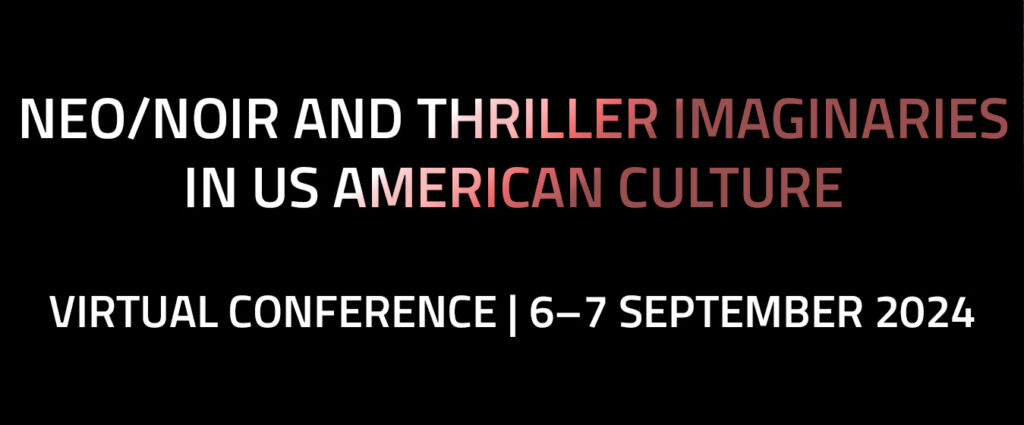
The virtual conference will focus on US American imaginaries related to neo/noir and thriller narratives. We wish to collect presentations that deal with noir broadly intended as, after all, “noir itself is a kind of mediascape—a loosely related collection of perversely mysterious motifs or scenarios that circulate through all the information technologies” (Naremore 2008, 255). Rooted in the works of crime writers and sensational stories, drawing inspiration on German Expressionism, and evolving into ramifications such as cyberpunk fiction, noir modes have been subtly pervasive and, to some extent, revived through the rise of true crime narratives.
We accept proposals that look at texts across popular culture media, including film, graphic narratives, TV series, genre literature, music, games, podcasts, and mocku/documentary.
FINAL PROGRAM
KEYNOTE | Making Bodies Matter: Queer Visibility in True Crime Biofictions
Rachel Friars (Queen’s University)
Controversial and commercially popular true crime biofictions like Netflix’s Dahmer (2022) have been hugely criticized for their (mis)representation of queer victims in favour of glamourized and glorified—and sometimes also queer—perpetrators. In recent literary true crime biofictions by women, however, queer characters are injected into the plot as a means of
demythologizing serial murderers while also criticizing the sociopolitical climate that, in part, facilitated some of history’s most infamous crimes. These representations are variously successful, since the texts are ethically complicated, using and adapting the facts of lives—and deaths—to fit their fictions. These novels nevertheless attempt to move toward centralizing victims rather than perpetrators and react against the necropowers that locate some bodies as ‘less-dead’ than others in retelling some of true crime’s most well-known narratives from alternative perspectives.
Rachel M. Friars received her PhD in English Literature from Queen’s University in 2024. Her research centers on neo-Victorianism and lesbian literature and history, with secondary interests in true crime and Gothic fiction. Her work has been published with journals such as Crime Studies Journal, Studies in the Novel, The Journal of Neo-Victorian Studies, Queer Studies in Media and Popular Culture, and The Palgrave Handbook of neo-Victorianism.
Organizing Committee
Anna Marta Marini (Instituto Franklin-UAH)
Dina Pedro (Universidad de Valencia)
Laura Álvarez Trigo (Universidad de Valladolid)
Michael Fuchs (University of Innsbruck)

